The Other Pandemic
A Photoessay by Al Rendon
When I first saw the memorial not far from my home in San Antonio, Texas, I thought, “There are no words for this.” Fifty-three migrants had suffocated to death in a truck there.
It was just so hard to process. I still have no words, but I’ll try because my grandparents were immigrants too, fleeing from Mexico for a better life to the United States, just as these immigrants from Mexico and Central America fled their homelands from economic turmoil, conflict and violence.
On June 27, San Antonio police and Homeland Security investigators found 64 migrants, some trapped inside the tractor-truck and others nearby in the asphyxiating Texas heat. They were being smuggled into the United States. Almost all of them died.
Being a Catholic, I couldn’t help but think these people were being persecuted just for wanting a better life.
It was so sad. People were just left there in the middle of nowhere, dead and dying. It felt like a literal dumping spot, with auto salvage places and earth-moving equipment, kind of ghostly. You just can’t believe that so many people could fit into the back of a truck. How could the driver not have known people were dying there?
When I first went to the site, people were still putting up crosses in memory of those who perished. Someone had done a multi-paneled painting. There were four flags in honor of the countries the migrants had come from. The people all looked like immigrants. They had been through all that. No one said a word.
I have no words either. Only pictures. Like those who made the memorials, I document life through art, just like my father who was a woodcarver who worked with his hands.
The story has dropped out of the news, pushed off the front pages by the pandemic and the war in Ukraine.
I kept taking photos to document this other pandemic, the way immigrants are treated, the way we forget their stories in a barrage of other news. I let myself get involved in the visual aspect. It wasn’t until later that I really felt it.
The bright light wasn’t quite right so I decided to go back early the next morning. It was like going to a cemetery.
I took photos in silence.
It was a sacred place.



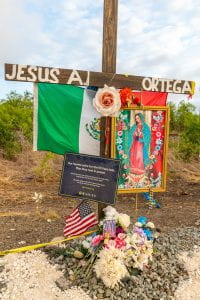
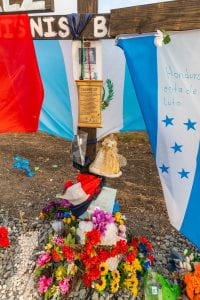
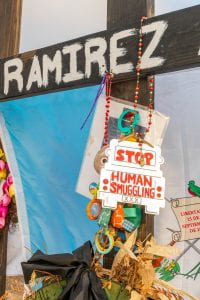


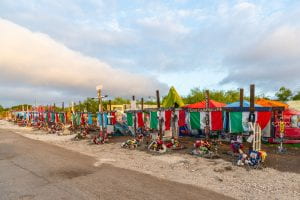
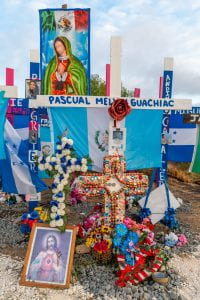
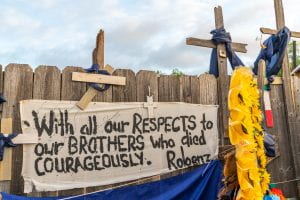
For more on memorials and counter-memorials, see our Spring/Summer 2021 issue of ReVista.
Related Articles
Unequal Beginnings: Artificial Intelligence and Latin America’s Educational Divide
Latin America has never lacked talent. What it has lacked, historically, structurally and persistently is equal access to the conditions that allow talent to flourish.
Financial Institutions: Strengthening the Rule of Law in Latin America
Latin American countries continue to accumulate laws, regulations and rules. These legal instruments need to be implemented and then enforced.
Extractivism and Colonialism in Argentina: A View from the Patagonia
It was snowing the day in early August when I arrived at Lof Pillan Mahuiza, a Mapuche-Tehuelche community around 60 miles from Esquel, the provincial capital of Chubut, Argentina.




